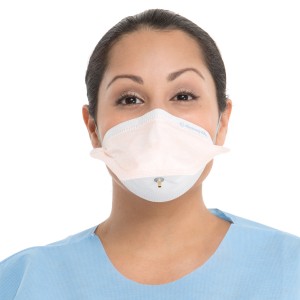Published in Healthcare Purchasing News
December 21, 2022
 Jason Burnham, Senior Director of Facial Protection at Owens & Minor, shared his insights in a Healthcare Purchasing News article unpacking learning lessons on mask and respirator use during the COVID-19 pandemic to inform future improvements for other potential outbreaks.
Jason Burnham, Senior Director of Facial Protection at Owens & Minor, shared his insights in a Healthcare Purchasing News article unpacking learning lessons on mask and respirator use during the COVID-19 pandemic to inform future improvements for other potential outbreaks.
In the article, Burnham discussed the need to design and test children’s masks as parents and healthcare workers were uncertain on how to protect their children’s health during the pandemic. He also discussed how healthcare providers should start adhering to guidance around proper mask usage from health agencies and authorities and stray away from habits adopted during the pandemic. “Since the inception of the pandemic, staff are often re-wearing disposable face masks due to scarcity rather than disposing and donning a new mask between patients. This is a significant departure from the CDC’s Standard Precautions,” Burnham said.
In addition, he recommended that hospitals ensure they have the right facial protection for the task at hand to rebalance proper demand planning – noting that healthcare workers often wore the facial protection that was readily available during the pandemic, even if it did not match the protection needed in certain settings.
Burnham has over 25 years of experience in healthcare solutions including expertise in global healthcare product manufacturing, supply chain management, and design of products and technologies for various acute and non-acute healthcare points of care. Throughout his career, Burnham has steered supply of critical PPE, most recently during the COVID-19 pandemic where he worked closely with U.S. Government agencies as an industry liaison and led partnerships to expand the industrial base of critical healthcare supplies.













